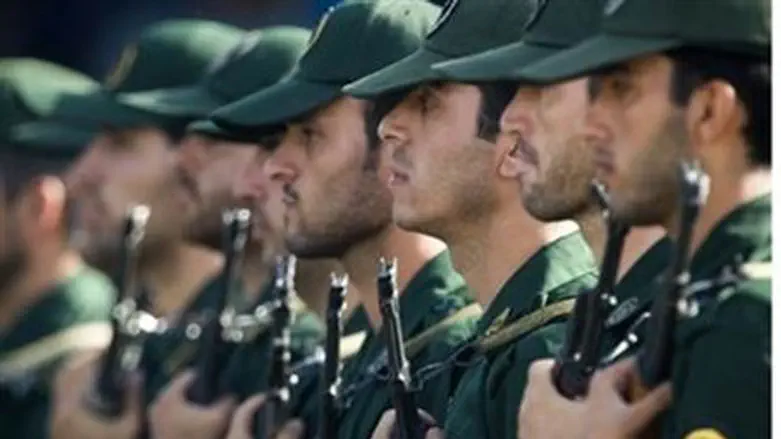
Remarkable footage has emerged of Iranian military forces on the ground in Syria, fighting alongside pro-government militias.
Shia Iran is the Assad regime's closest ally, along with the Hezbollah terrorist group, and Iranian support is nothing new. But whilst Hezbollah has officially acknowledged that its fighters are actively engaged in battle on behalf of the Assad regime, Iranian officials always maintained that any Iranian presence in Syria and support for the Assad regime was limited to logistical support and "military advisers," away from the front lines.
But footage had emerged in the past few days indicating that Iranian involvement goes far further, and appears to corroborate rebel claims that soldiers from the Iranian army and Revolutionary Guards are present on the ground, and playing a direct role in the fighting.
The first piece of footage was aired by the BBC on Friday, and showed armed men on the ground, speaking fluent Farsi (Persian), directing military operations and engaging in battle. Experts branded it the "most significant evidence yet" that Iranian forces were playing a direct role in fighting Syrian rebels.
But an even more remarkable clip has been shown by the Dutch Nieuswsuur TV channel, which gives an in-depth glimpse into the activities of Iranian troops on the ground in some of Syria's front-lines, as they train, coordinate and fight alongside pro-government militias.
The footage includes a one-on-one interview with a local Iranian commander, in which he explains why in his view Iranian forces have been more effective at commanding "civilian militias" than the Syrian army itself. Those militias were set up to supplement the increasingly overstretched Syrian army in its battle against rebel forces.
He criticizes the Syrian military for its reliance on "force" to enforce its orders, and contrasts it with the more "respectful" approach taken by the Iranian commanders - an approach he says has made them more popular among the militias than the Syrian army.
The film also shows how Iranian soldiers are winning hearts and minds among local civilians: handing out sweets to children and making contact with the local population - in contrast to the Syrian military's conduct.
"Their army vehicles race part, without any consideration for the local population," laments the Iranian commander.
But there is a hint that such goodwill is a purely military decision, as opposed to genuine goodwill, with hints of historical Iranian-Arab antagonism still apparent in one particular "off camera" incident.
"When we came, there were no human beings. They had deserted the village," says one soldier, prompting his comrade to joke that "there are still no humans, only Arabs!"
The Iranian commander claims that many apart from being directed by his forces, pro-government militiamen fighting on behalf of the Assad regime were trained in Iran.
"They're familiar with our customs, and that makes cooperation easier," he says.
Offering an insight into the motivation of Iranian fighters in Syria, he characterizes the conflict as a "holy war" - illustrating how Islamist fundamentalism is playing an important role on both sides of the increasingly sectarian clash between the Shia-backed government and Sunni rebels.
"This front we're fighting at now is not a front where the Syrian army is at war with the Syrian people," he says.
"The current war in Syria is that of Islam versus the nonbelievers. Good versus evil" with Iran, Hezbollah and various other Shia "holy warriors" on the side of Islam, and a confederation of Saudi Arabia, the Gulf States, western powers and Israel in the camp of the "unbelievers."
